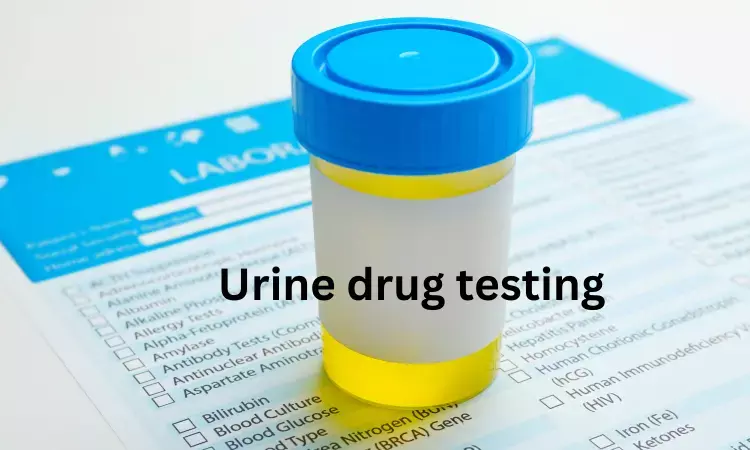- Home
- Medical news & Guidelines
- Anesthesiology
- Cardiology and CTVS
- Critical Care
- Dentistry
- Dermatology
- Diabetes and Endocrinology
- ENT
- Gastroenterology
- Medicine
- Nephrology
- Neurology
- Obstretics-Gynaecology
- Oncology
- Ophthalmology
- Orthopaedics
- Pediatrics-Neonatology
- Psychiatry
- Pulmonology
- Radiology
- Surgery
- Urology
- Laboratory Medicine
- Diet
- Nursing
- Paramedical
- Physiotherapy
- Health news
- Fact Check
- Bone Health Fact Check
- Brain Health Fact Check
- Cancer Related Fact Check
- Child Care Fact Check
- Dental and oral health fact check
- Diabetes and metabolic health fact check
- Diet and Nutrition Fact Check
- Eye and ENT Care Fact Check
- Fitness fact check
- Gut health fact check
- Heart health fact check
- Kidney health fact check
- Medical education fact check
- Men's health fact check
- Respiratory fact check
- Skin and hair care fact check
- Vaccine and Immunization fact check
- Women's health fact check
- AYUSH
- State News
- Andaman and Nicobar Islands
- Andhra Pradesh
- Arunachal Pradesh
- Assam
- Bihar
- Chandigarh
- Chattisgarh
- Dadra and Nagar Haveli
- Daman and Diu
- Delhi
- Goa
- Gujarat
- Haryana
- Himachal Pradesh
- Jammu & Kashmir
- Jharkhand
- Karnataka
- Kerala
- Ladakh
- Lakshadweep
- Madhya Pradesh
- Maharashtra
- Manipur
- Meghalaya
- Mizoram
- Nagaland
- Odisha
- Puducherry
- Punjab
- Rajasthan
- Sikkim
- Tamil Nadu
- Telangana
- Tripura
- Uttar Pradesh
- Uttrakhand
- West Bengal
- Medical Education
- Industry
Telehealth-based opioid treatment platforms feasible for Urine drug testing in Opioid Use Disorder: JAMA

In a recent cohort study of 3395 patients, published in JAMA Network suggests urine drug testing was highly feasible and sustained throughout the duration of treatment opioid use disorder (OUD), consistent with in-person settings. Rates of unexpected results were low throughout care.
Buprenorphine is the most popular medication for OUD with upward of 1 million to 2 million individuals treated annually among an estimated 7.6 million individuals with OUD. Rapid growth of technology and adoption of telehealth-based opioid treatment (TBOT), there is an urgent need for rigorous studies exploring the feasibility and characteristics of urine drug screening (UDS).
Researchers investigated administration patterns and results of UDS to assess feasibility of UDS and patient outcomes in a TBOT setting.
The current observational cohort study was conducted between January 1, 2021, and December 6, 2022, and included patients with opioid use disorder treated in Ophelia, a TBOT treatment platform in 14 states. Data analysis was performed from January to March 2023. Number and percentage of patients with UDS within 30, 90, and 180 days of intake, grouped by adherence to clinical protocols. Associations were assessed between baseline characteristics and UDS completion and opioid positivity in first 30 days using χ2 tests.
The key findings of the study are
• Among 3395 patients (mean [SD] age, 38.2 [9.3] years, mostly male [54.1%], non-Hispanic White [81.5%], urban-residing [80.3%], and cash-pay at intake [74.0%]), 2782 (83.3%) completed a UDS within 30 days (90.0% among protocol-adherent patients, 67.0% among protocol-nonadherent patients).
• A total of 2750 of 2817 (97.6%) patients retained more than 90 days completed 1 or more UDS, as did 2307 of 2314 (99.7%) patients retained more than 180 days.
• Younger patients, patients of a racial and ethnic minority group, those living in urban areas, and cash-pay patients were less likely to complete a UDS in the first 30 days.
• Buprenorphine positivity increased (from 96.9% to 98.4%, P = .004) and opioid positivity declined (from 7.9% to 3.3%, P < .001) over time.
Researchers concluded that “In this cohort study of patients with opioid use disorder receiving buprenorphine in a remote care environment, UDS was highly feasible, though early UDS completion rates varied across demographic subgroups. The prevalence of unexpected UDS results was low and declined over time in treatment.”
Reference: Williams AR, Rowe C, Gallagher R, Aronowitz SV, Diamond-Reivich, J, Bisaga A. Urine Drug Screening in a Telehealth Setting for the Treatment of Opioid Use Disorder. JAMA Health Forum. 2023;4(7):e232247. doi:10.1001/jamahealthforum.2023.2247.
MSc. Neuroscience
Niveditha Subramani a MSc. Neuroscience (Faculty of Medicine) graduate from University of Madras, Chennai. Ambitious in Neuro research having worked in motor diseases and neuron apoptosis is interested in more of new upcoming research and their advancement in field of medicine. She has an engrossed skill towards writing and her roles at Medical dialogue include Sr. Content writer. Her news covers new discoveries and updates in field of medicine. She can be reached at editorial@medicaldialogues.in
Dr Kamal Kant Kohli-MBBS, DTCD- a chest specialist with more than 30 years of practice and a flair for writing clinical articles, Dr Kamal Kant Kohli joined Medical Dialogues as a Chief Editor of Medical News. Besides writing articles, as an editor, he proofreads and verifies all the medical content published on Medical Dialogues including those coming from journals, studies,medical conferences,guidelines etc. Email: drkohli@medicaldialogues.in. Contact no. 011-43720751


